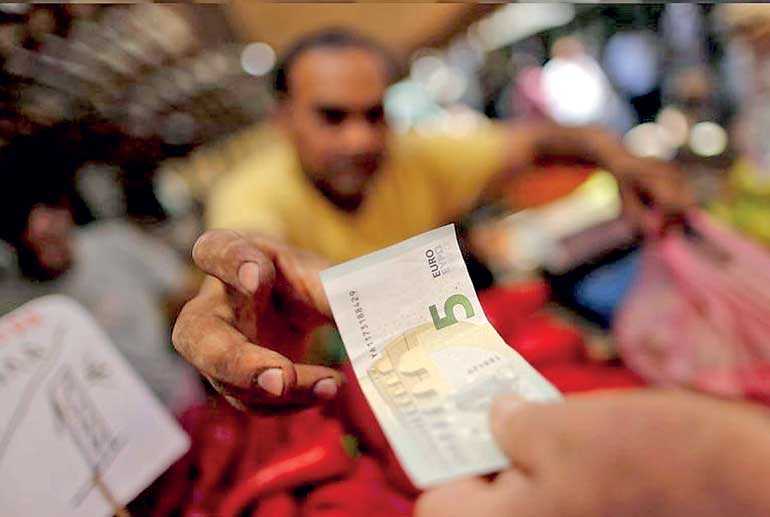Wednesday Feb 25, 2026
Wednesday Feb 25, 2026
Tuesday, 11 December 2018 00:00 - - {{hitsCtrl.values.hits}}

BENGALURU (Reuters): The European Central Bank is on course to raise its still-negative deposit rate in the third quarter of 2019 but economists’ conviction has faded over the past month as the chances of a recession have risen.
A Reuters poll conducted 4-7 December also showed economists are unanimous in saying the risk is low that the Governing Council will extend its more than 2.6 trillion euro ($2.96 trillion)asset purchase program beyond this month, which would break its long-held guidance.
The survey, taken during a period of extreme gyrations in global financial markets, also found it was a close call for economists on whether the ECB would hike its main refinancing rate in a year’s time, and it may be pushed into early 2020. The rate is currently zero.
A series of weak economic reports, including slowing momentum in key business surveys and a shock report showing euro zone growth halved to just 0.2% in the third quarter, which was the lowest in four years, is partly responsible for the hesitation.
But even if the economy does bounce back in the current quarter as most respondents still expect, there is not enough likely momentum or inflation pressure building to warrant several rate rises next year.
The survey is the latest in a series of Reuters polls on major world central banks, including the US Federal Reserve, which show fading conviction for policy tightening.
“I would say we have strong doubts ... there is a genuine chance there will be no hikes at all next year. Within the next few years the only thing I see is a normalization of getting rid of negative interest rates,” said Peter Vanden Houte, chief euro zone economist at ING.
Nearly two-thirds of respondents who answered an extra question, 31 of 48, said their conviction around the ECB’s current expected rate hike path in 2019 has fallen over the past month.
Only three felt more confident, while the remaining 14 said there was no change.
“With actual growth rates set to lag potential growth from 2019 onwards, the ECB’s medium-term inflation target is unlikely to be attained on a sustainable basis,” wrote Juergen Michels, chief economist at BayernLB.
“Accordingly, the ECB is likely to distance itself more and more from its plan to raise its policy rates for the first time after summer 2019.”
The latest Reuters poll found the chances of a recession next year, while still low, crept up to 20% from 15% previously, where it had held since August.
Similarly, the probability of a recession in two years also rose, to 30% from 25%, the first rise since July, when Reuters first started polling on this period.
ING’s Vanden Houte gave a 40% chance of recession by the end of 2020, but said it might be a bit too early to worry, noting unemployment was still falling and weaker oil prices will provide some relief to consumers.
“If you take all that together there is still some domestic support for the economy to continue to grow, but it will be much weaker for sure and in 2020 the risk of recession increases. But to already say now that the risk of recession is more than 50% is overdoing it.”
Inflation, which the ECB targets at just below 2%, is forecast to slip next year to 1.7%, followed by 1.6% in 2020.
Quarterly growth is set to bounce back to 0.4% in the current quarter, according to the poll, but average growth for 2019 was cut to 1.6% from 1.7 in the previous poll, the lowest in over a year of polling for that period. The forecast for 2020 held steady at 1.5%.
The ECB is due to update its staff projections on growth and inflation at the 13 December policy meeting.
After it ends its asset purchase program, which was launched nearly four years ago, the poll found the ECB will continue reinvesting the proceeds from bonds maturing in its existing portfolio for at least another year.
The central bank is also expected to launch in the first half of 2019 another round of long-term loans to banks, known as Targeted Long-Term Refinancing Operations (TLTROs), according to nearly three-quarters of respondents.